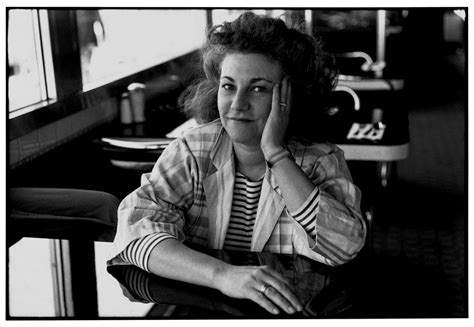A Quote by Emily Matchar
It's not the nineteenth century; I'm not meant to be judged on how good a housekeeper I am. Getting down on the floor with a lemon and a bucket of vinegar does not make me a better person.
Related Quotes
Given that the nineteenth century was the century of Socialism, of Liberalism, and of Democracy, it does not necessarily follow that the twentieth century must also be a century of Socialism, Liberalism and Democracy: political doctrines pass, but humanity remains, and it may rather be expected that this will be a century of authority ... a century of Fascism. For if the nineteenth century was a century of individualism it may be expected that this will be the century of collectivism and hence the century of the State.
It seems to me that the novel is very much alive as a form. Without any question, every epoch has its own forms, and the novel nowadays cannot resemble that of the nineteenth century. In this domain all experiments are justified, and it is better to write something new clumsily than to repeat the old brilliantly. In the nineteenth century, novels dealt with the fate of a person or of a family; this was linked to life in that period. In our time the destinies of people are interwoven. Whether man recognizes it or not, his fate is much more linked to that of many other people than it used to be.
Now more than ever I am aware that a person's significant birthdays can either mark the passage of time, or they can mark changes they've made in their lives to reach their potential and become the person they were created to be. With each passing year, I want to make good choices that make me a better person, help me become a better leader, and make a positive impact on others.
I am telling you now: I might be young, but I am good. I work hard, and I'm a good person. I know what's right. I know what's wrong. And if you give me this chance-- if you just give me one shot to show you how good I can be, how hard I work, how much I believe in doing the right thing -- I won't let you down. I promise.
'When you have a lemon, make a lemonade.' That is what a great educator does. But the fool does the exact opposite. If he finds that life has handed him a lemon, he gives up and says, 'I 'm beaten. It is fate. I haven't got a chance.' Then he proceeds to rail against the world and indulge in an orgy of self-pity .
A person of your century: Great persons are of their time. Not all were born into a period worthy of them, and many so born failed to benefit by it. Some merited a better century, for all that is good does not always triumph. Fashions have their periods and even the greatest virtues, their styles. But the philosopher, being ageless, has one advantage: Should this not prove the right century, many to follow will.

































